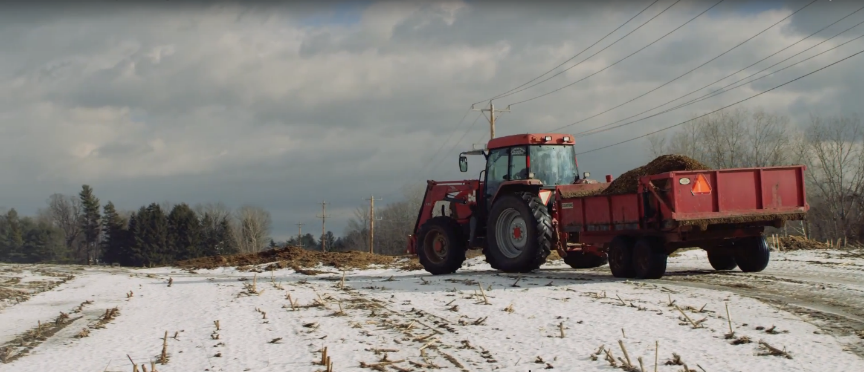
Vermont continues to protect environment through restrictions on winter manure spreading
December 13, 2024 | Montpelier VT - The Vermont Agency of Agriculture, Food & Markets (VAAFM) would like to remind all farm operations that the annual winter manure spreading ban begins December 15th. Between December 15 and April 1, no manure or other agricultural waste (including compost and spoiled feed) may be spread on agricultural fields throughout Vermont. This annual ban is required by the Required Agricultural Practices (RAPs), which is a part of Vermont’s overall strategy to protect water quality, the working landscape, and natural resources.
The RAPs also prohibit the application of manure or agricultural wastes on frozen, saturated, or snow-covered fields outside of the winter manure spreading ban. Manure does not soak effectively into frozen, snow-covered, or saturated ground. Manure spread during the winter months therefore has a heightened risk of running off to waterways when the snow and ground finally thaws.
For more than 35 years, restrictions on winter manure spreading in Vermont have been in place to protect water quality. These restrictions have minimized spreading and potential runoff during winter, when field conditions may be particularly susceptible to it. The annual spreading ban requires farmers to either have a storage structure that can hold all agricultural manure and runoff that is required to be collected between December 15th to April 1st, which is 107 days, or they must be able to stack all manure produced in a way that meets RAP standards and will not lead to adverse water quality impacts.
Manure spreading is a common and widespread practice in Vermont agriculture, it enhances soil health and fertility for optimal crop production, plays a pivotal role in the nutrient cycle, and reduces imported nutrients. Per the RAPs, farms are required to utilize nutrient management planning to minimize any adverse environmental impact. This includes keeping records of applications that occur including the date, time, amount, field location and weather and field conditions at the time of application.
Questions about the manure spreading ban, spreading before the ban, requests for assistance in the selection of appropriate manure stacking sites, or to request an emergency exemption please contact Nate Sands at (802) 224-6850 or Laura DiPietro at 802-595-1990.
